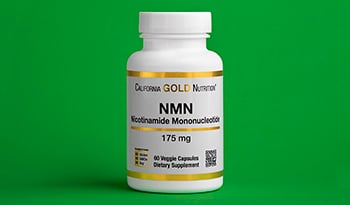Hvordan forbedre leverhelsen på en naturlig måte

Hvis du har utforsket måter å forbedre helsen din på, kanskje du ønsker å bli kvitt hjernetåke, treghet eller overvekt, har du sannsynligvis kommet over konseptet med en leverrensing, også kjent som en leveravgiftning. Selv om disse begrepene kan gi assosiasjoner til et tett filter som må renses, trenger ikke en velfungerende lever å bli spylt for giftstoffer.
Avgiftning er faktisk en av leverens viktigste funksjoner. Det er bare logisk at leveren har evnen til å rense seg selv. Så selv om rensing og detox kanskje er mer populære moteord i velværeverdenen, er leverstøtte sannsynligvis en bedre måte å beskrive et kosthold og en livsstil som optimaliserer leverfunksjonen på.
Du kan kalle det hva du vil. Det viktige poenget er at en sunn lever er avgjørende for den generelle helsen din.
Hvorfor fokus på leverhelse?
Vi lever i en giftig verden. Kroppen vår må forholde seg til en tilsynelatende stadig økende giftbelastning. Disse giftstoffene kan dukke opp i form av sprøytemidler, husholdningsstøv, utendørs luftforurensning, kjemikalier i vannforsyningen, hormoner som sprøytes inn i dyrekjøtt, kunstige ingredienser i bearbeidet mat eller skadelige stoffer i sminke, kremer og sjampo.
Når giftstoffer kommer inn i kroppen og passerer ut i blodbanen, føres de til leveren. Deretter går leveren i gang med å sortere hva som skal bort og hva som skal bli værende. Mer spesifikt bestemmer den hva som må nøytraliseres og elimineres, og hva som må slippes gjennom for å tilføre kroppen næringsstoffer.
Å eliminere giftstoffer er imidlertid ikke bare en enkel filtreringsprosess. Avgiftningen skjer i to faser. I fase 1 skal leverenzymer binde giftige stoffer og omdanne dem til tryggere forbindelser. I fase 2 tilfører leveren molekyler til disse forbindelsene for å gjøre dem vannløselige (slik at de blir mer stabile og lettere å transportere).
Glutation er en av leverens & amp; rsquo; s viktigste rollespillere i fase 2. Sammensatt av tre aminosyrer (cystein, glycin og glutamin), brukes glutation av leveren til å binde seg med giftstoffer og transportere dem ut av kroppen.
Glutation er en av de kraftigste antioksidantene som kroppen din produserer. Som antioksidant bekjemper den frie radikaler—ustabile oksygenmolekyler som dannes under kroppens’normale metabolske prosesser. I et forsøk på å gjenopprette stabiliteten prøver disse oksygenmolekylene å rive elektroner fra omkringliggende molekyler, og dette skaper flere frie radikaler. Når denne aktiviteten fortsetter å spre seg, kan det oppstå celleskade. Dette antas å være veien til aldringseffekter, samt til utvikling av infeksjoner og sykdommer, inkludert kreft.
Siden glutation lages i leveren, er det lett å forstå hvorfor leverhelse bør være et viktig fokusområde i velværearbeidet ditt. Når leveren regelmessig må håndtere en stor giftbelastning, er det mulig å overbelaste dens ressurser. Ikke bare kan glutationtilførselen bli lav, men også andre leverfunksjoner kan bli skadelidende. Leveren har også andre viktige roller—produsere galle (som er nødvendig for å fordøye fett), lagre jern og vitaminer, kaste gamle røde blodlegemer og omdanne lagret sukker til en form kroppen kan bruke som energi når det trengs. Den gjør seg av med gamle røde blodlegemer og omdanner lagret sukker til en form kroppen kan bruke som energi når den trenger det.
Måter å støtte leveren din på
Her er noen livsstilsprinsipper som kan øke leverens helse:
Øvelse
Trening reduserer belastningen på leveren, siden huden er en annen avgiftningsvei. Med økt svetting kan flere giftstoffer elimineres gjennom huden, noe som reduserer belastningen på leveren.
Håndtere stress
Kortisol er stresshormonet som også styrer homeostasen, eller den balanserte tilstanden, i leveren. For mye kortisol kan forstyrre denne balansen.
Begrens alkoholinntaket
Leveren kan bare bryte ned en liten mengde alkohol hver time. Drikk med måte, det vil si ikke mer enn én drink per dag for en kvinne av gjennomsnittsstørrelse og to drinker per dag for en mann av gjennomsnittsstørrelse. En standarddrink er 5 gram vin, 12 gram øl eller 1,5 gram brennevin.
Spis et balansert, næringsrikt kosthold
Reduser inntaket av transfett, mettet fett og herdet fett, da dette øker risikoen for fettleversykdom. Mettet fett finnes i frityrstekt mat, meieriprodukter og rødt kjøtt (selv om gressfôret storfekjøtt inneholder mindre mettet fett enn kornfôret storfekjøtt). Begrens raffinert sukker og maissirup med høyt fruktoseinnhold. Siden denne typen sukker bare kan bearbeides i leveren, kan det å unngå dem redusere leverbelastningen. Det kan også være lurt å tilsette matvarer som støtter en sunn leverfunksjon.
Mat og kosttilskudd for en sunn lever
Glutation boostere
Grønn te, fiskeoljeog resveratrol inneholder stoffer som aktiverer genene som er ansvarlige for å danne glutation. Cruciferous grønnsaker (som brokkoli, kål og blomkål) øker produksjonen av glutation. Både hvitløk og løk inneholder svovel, som er nødvendig for å lage glutation.
Selen
Selen er et mineral som øker leverens evne til å resirkulere glutation. Det finnes i tilskuddsform eller i matvarer som kalkun, sardiner og . paranøtter.
Vitamin E
Vitamin E er en viktig antioksidant som bidrar til å resirkulere glutation. Matvarer som er rike på vitamin E inkluderer mandler, avokado og spinat. avokado og spinat.
Vitamin C
En velkjent antioksidant C-vitamin samarbeider med glutation for å eliminere vannløselige giftstoffer fra kroppen.
N-acetylcystein
NAC er en aminosyre som er en forløper for glutation. Så det hjelper til med å fylle på leveren& rsquo; glutationforsyningen.
Alfa-liponsyre
ALA er en antioksidant som også er en forløper for glutation.
Grønn te
Grønn te inneholder rikelig med antioksidanter, såkalte katekiner, som fremmer leverfunksjonen.
Fermentert mat
Kefir, kimchi, kombucha, surkål og andre fermenterte matvarer inneholder probiotika, gunstige bakterier som bidrar til et sunt fordøyelsessystem. , gunstige bakterier som bidrar til et sunt fordøyelsessystem og opprettholder tarmslimhinnen. Ved å holde skadelige stoffer i fordøyelseskanalen og ute av blodomløpet, reduseres den giftige belastningen på leveren. Giftstoffene kan da enkelt elimineres med avføringen.
Rødbeter
Stoffet betain som finnes i rødbeter , bidrar til avgiftningsprosessen samt nedbrytning og fjerning av fett i leveren.
Grønne bladgrønnsaker
Grønne grønnsaker som grønnkål, romaine, spinat, ruccola, grønnkål og løvetanngrønnsaker har et høyt innhold av klorofyll, som øker galleproduksjonen, bidrar til å rense blodet og nøytralisere tungmetaller, plantevernmidler og giftige kjemikalier som belaster leveren. som øker galleproduksjonen, bidrar til å rense blodet og nøytraliserer tungmetaller, plantevernmidler og giftige kjemikalier som belaster leveren.
Linser
Kolin, som finnes i linser , brukes av leveren til å forberede fett til fordeling i kroppen. brukes av leveren til å forberede fett til fordeling i kroppen. På denne måten bidrar kolin til å forhindre opphopning av fett i leveren.
Omega-3-fettsyrer
Fiske- og krill- oljer inneholder omega-3-fettsyrersom har vist seg å redusere fett og betennelse i leveren hos personer med ikke-alkoholrelatert fettleversykdom. som har vist seg å redusere fett og betennelse i leveren hos personer med ikke-alkoholisk fettleversykdom. Omega-3-tilskudd kan dermed forbedre leverfunksjonen og redusere betennelse.
ANSVARSFRASKRIVELSE:Velværesenteret har ikke til hensikt å gi diagnoser ...
















































































 Innholdsfortegnelse
Innholdsfortegnelse














